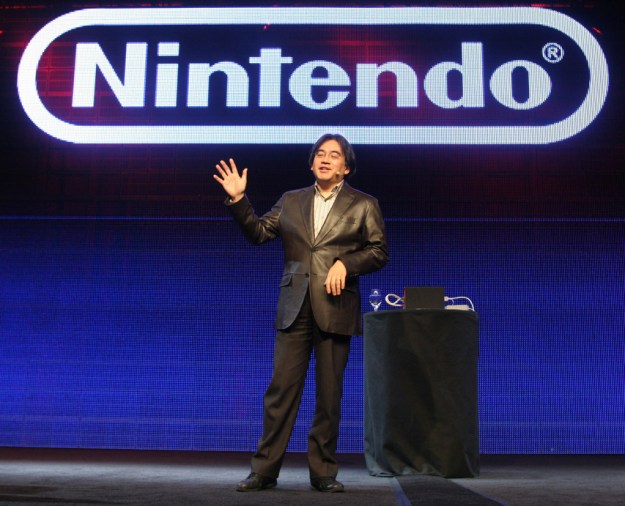 Back at the end of January, Nintendo reported earnings for the holiday season that reflected the tumultuous state of the company that was founded in 1889. On the one hand, Nintendo revealed that it managed to sell 3 million Wii U consoles between November and January, a promising start for a new machine in a volatile market. On the other hand, Nintendo had already seen Wii U sales drop off dramatically in the new year and had to downgrade its expectations for the fiscal year ending in March. Where the company originally expected to sell 5.5 million Wii Us by the end of March, it was now only expecting to sell 4 million. Revenue projections previously pegged Nintendo’s fiscal 2013 take at $9 billion. Now it is only expecting $7 billion.
Back at the end of January, Nintendo reported earnings for the holiday season that reflected the tumultuous state of the company that was founded in 1889. On the one hand, Nintendo revealed that it managed to sell 3 million Wii U consoles between November and January, a promising start for a new machine in a volatile market. On the other hand, Nintendo had already seen Wii U sales drop off dramatically in the new year and had to downgrade its expectations for the fiscal year ending in March. Where the company originally expected to sell 5.5 million Wii Us by the end of March, it was now only expecting to sell 4 million. Revenue projections previously pegged Nintendo’s fiscal 2013 take at $9 billion. Now it is only expecting $7 billion.
On Wednesday, Nintendo will announce how those earnings actually turned out, and industry expectations are that Nintendo is going to miss the mark. Big time.
Bloomberg reported on Tuesday that, based on the estimates of fifteen different market research sources, Nintendo will post its second annual loss in the company’s history. If these estimates are correct, Nintendo will have at least narrowed its losses. In 2012, Nintendo posted an annual loss of $530 million. The belief is that Nintendo will report a $188 million loss. That’s on top of operating income estimates based on nineteen sources, of roughly $704 million.
Even though losses have been mitigated somewhat, that operating income could cause a significant change in leadership at Nintendo. Nintendo president Satoru Iwata declared at the beginning of the fiscal year that he planned for the company to report $1 billion in operating income. “It is our must-do for the next fiscal year to revive the momentum of our overseas business, expand the market by exploiting the potential of our products, and therefore retrieve ‘Nintendo-like’ profits,” said Iwata at the time.
“Please understand that [achieving it] is my commitment,” he told investors when asked is he was personally responsible for hitting that earnings threshold.
This spring has been littered with the corpses of game executive careers. Electronic Arts John Riccitiello and Square-Enix’s Yoichi Wada have both been forced to resign in the wake of years of disappointing earnings. Given his comments in the past, Iwata may be forced out, making way for Nintendo’s third president since it entered the video game market in the 1970s.
Even if the analysts’ expectations of Nintendo’s earnings are incorrect, it appears Nintendo will miss its expectations for the spring quarter. The Nintendo Wii U has been savaged at retail. Part of the reason the Wii U has been selling so poorly is the lack of new software. Nintendo planned to release games like Game & Wario and Pikmin 3 in Japan this quarter but both were delayed. Meanwhile key releases in Europe and America were either delayed or outright canceled. Rayman Legends was canceled as a Wii U exclusive just two weeks before its February release, and the notorious stinker Aliens: Colonial Marines was supposed to follow in March before Sega canceled it outright.


